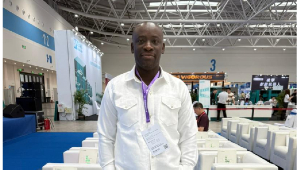By Abubakar Mohammed Marzuq Azindoo, Coordinator of Students and University Relations, University of Applied Management (UAM), Germany – Ghana Campus, McCarthy Hill, Accra and Tamale Email: azindoo200@gmail.com Tell: 0244755402
Introduction
In our efforts at achieving literary mastery for effective writing and speaking at various levels and for various purposes, we do revisit SENTENCE at a different level from a different perspective in a different context. Indeed, this time round we discuss the SENTENCE at a higher level from the perspective of transitive verb in a context of ACTIVE and PASSIVE VOICE. This is to broaden our understanding of SENTENCE as an essential ingredient of written and spoken communication.
Learning Outcomes
By the end of this discourse, fellow learners and readers are expected to understand:
• Active Voice and proper usage in a passage • Passive Voice and proper usage in a passage • Forms of Passive Voice • Retained Object in Passive Construction.
Active voice
This is a kind of sentence in which the subject performs the action of a Transitive Verb – a verb that attracts an object or objects. In most ideal situations, Active Voice reflects the normal word order in sentence construction.
Below are examples:
• Chalpang has eaten the rice. [Chalpang: subject has done the eating: verb]. • Kataale is writing a letter. [Kataale: subject is doing the writing: verb]. • Yelsuma and Kofi study at Dagbon State University. [Yelsuma and Kofi: compound subject do the studying: verb].
Passive voice Alternatively, one can change the normal word order of many active sentences (those with direct objects). This way, the subject is no longer ACTIVE, but is, instead, being ACTED UPON by the verb – PASSIVE. When this is done, the sentence is said to be in the PASSIVE VOICE.
Note in the following examples how the subject-verb relationship has changed:
• The rice has been eaten by Chalpang. • A letter is being written by Kataale.
NOTE: “Yelsuma and Kofi study at Dagbon State University” cannot be changed to Passive Voice because the sentence does not have a Direct Object.
To be continued.
Opinions of Sunday, 28 June 2015
Columnist: Azindoo, Abubakar Mohammed Marzuq














